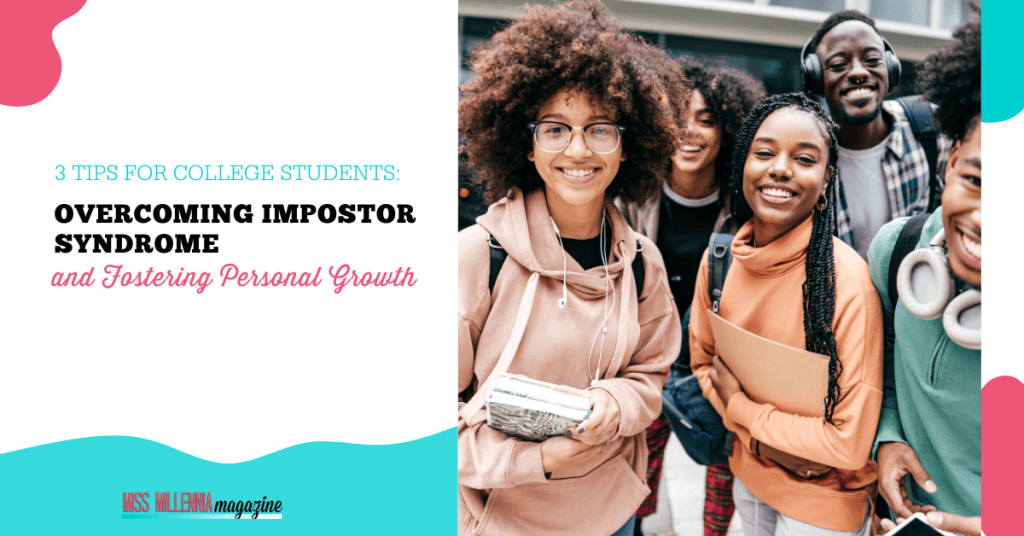3 Tips for College Students: Overcoming Impostor Syndrome and Fostering Personal Growth
College life is a thrilling adventure filled with opportunities for learning and growth, but it can also be a breeding ground for self-doubt and impostor syndrome. Regardless of their achievements, many students struggle with feelings of inadequacy and fear that they don’t truly belong or deserve their successes. Known as impostor syndrome, this condition can negatively impact one’s academic achievements, personal growth, and overall health.
The pressure of maintaining high grades, managing assignments, and the competitive environment can make students question their capabilities. Some might even consider using DoMyEssay, a paper writing service, to write an essay for me as a shortcut to cope with academic demands. However, addressing the root cause of these feelings and developing strategies to overcome them is essential for fostering a healthy and productive college experience.
1) Recognizing Impostor Syndrome
Understanding the Signs
Impostor syndrome can manifest in various ways, including persistent self-doubt and fear of being exposed as a “fraud,” attributing success to external factors like luck or error, and overworking to prevent failure, often at the cost of personal health. These feelings can be exacerbated by high-pressure academic environments where there is a constant comparison with peers, leading to an internalized fear of not measuring up to perceived standards.

The Impact on Students
Impacted by impostor syndrome, students may shy away from class participation, new challenges, or opportunities due to a fear of failure or being unmasked. This mindset can lead to missed experiences, hindered academic and personal growth, and increased stress and anxiety. The cyclical nature of these feelings can perpetuate a lack of confidence and prevent students from realizing their full potential, impacting their academic performance and overall well-being.
2) Strategies to Overcome Impostor Syndrome
Reframing Thoughts and Celebrating Successes
It’s vital to reassess and transform your perceptions of your skills and accomplishments. Acknowledge and celebrate your successes, big or small, and understand that perfection is unattainable and mistakes are part of the learning process. Shifting focus from fear of failure to recognition of accomplishments can significantly alter self-perception and mitigate feelings of impostor syndrome.
Seeking Support and Building Community
Connect with peers, mentors, and counselors who can provide perspective and support. Participating in study groups or joining campus clubs can foster a sense of community and belonging, providing emotional backing, affirming your experiences, and diminishing feelings of isolation associated with impostor syndrome.

Setting Realistic Goals and Embracing Learning
Set achievable goals to build confidence and track progress. View challenges as opportunities to learn and grow rather than threats to your intelligence or identity. By establishing clear, attainable objectives and recognizing the value of the learning process, students can combat feelings of inadequacy and build a more secure sense of self.
Enhancing Self-Awareness and Emotional Intelligence
Enhancing self-awareness and emotional intelligence is crucial for mitigating feelings of fraudulence. Understanding your emotional responses and triggers allows for better management of self-doubt and fosters more positive and grounded self-perceptions.
Practicing Self-Compassion and Mindfulness
Fostering self-compassion is a fundamental strategy in addressing impostor syndrome. Practicing mindfulness and being kind to yourself, especially during challenging times, can help alleviate the harsh self-judgment and perfectionism that fuel impostor feelings. Applying the same level of kindness and empathy to yourself as you would to a friend can significantly lessen the effects of impostor syndrome.
3) Fostering Personal Growth in College
Developing a Growth Mindset
Confront challenges and perceive failures as chances for enhancement and education. Adopting a growth mindset can bolster resilience and consistent effort when facing challenges. This perspective helps students to appreciate growth and progress rather than fixating on the fear of not being “good enough.”
Engaging in Self-Reflection and Mindfulness

Regular self-reflection can help you understand your feelings and motivations, aiding in overcoming impostor syndrome. Mindfulness practices can alleviate stress and improve concentration and self-compassion, leading to a stronger, more stable sense of self and lessening feelings of being an impostor.
Leveraging Campus Resources
Many colleges offer workshops, counseling, and seminars aimed at helping students develop skills to combat impostor syndrome and foster personal growth. Leveraging available support resources can provide further assistance and direction. Participating in these programs not only aids in overcoming impostor syndrome but also contributes to developing a supportive community that encourages personal and academic success.
Conclusion
Overcoming impostor syndrome is a crucial step toward achieving personal growth and success in college. By recognizing the signs, employing effective strategies to combat them, and actively engaging in self-improvement, students can build a more confident and fulfilling college experience. It’s important to acknowledge that each student possesses the capacity for excellence and personal development. As you prepare for college presentations and other academic challenges, carry the confidence and strategies you’ve developed to overcome impostor syndrome, paving the way for a rewarding college journey and beyond.







